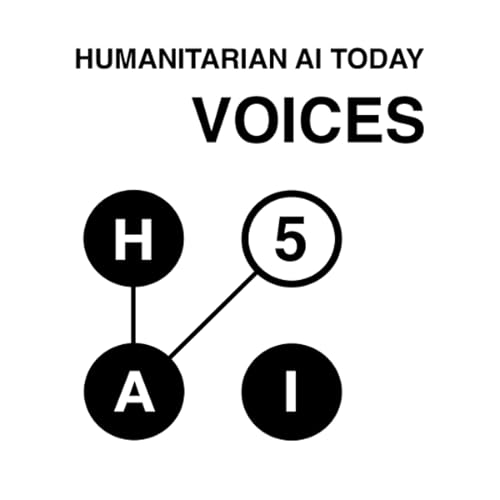
Humanitarian AI Today
Falha ao colocar no Carrinho.
Tente novamente mais tarde
Falha ao adicionar à Lista de Desejos.
Tente novamente mais tarde
Falha ao remover da Lista de Desejos
Tente novamente mais tarde
Falha ao adicionar à Biblioteca
Tente outra vez
Falha ao seguir podcast
Tente outra vez
Falha ao parar de seguir podcast
Tente outra vez
-
Narrado por:
Sobre este título
Episódios
-
 16 minutos
16 minutosFalha ao colocar no Carrinho.
Tente novamente mais tardeFalha ao adicionar à Lista de Desejos.
Tente novamente mais tardeFalha ao remover da Lista de Desejos
Tente novamente mais tardeFalha ao adicionar à Biblioteca
Tente outra vezFalha ao seguir podcast
Tente outra vezFalha ao parar de seguir podcast
Tente outra vez -
 44 minutos
44 minutosFalha ao colocar no Carrinho.
Tente novamente mais tardeFalha ao adicionar à Lista de Desejos.
Tente novamente mais tardeFalha ao remover da Lista de Desejos
Tente novamente mais tardeFalha ao adicionar à Biblioteca
Tente outra vezFalha ao seguir podcast
Tente outra vezFalha ao parar de seguir podcast
Tente outra vez -
 18 minutos
18 minutosFalha ao colocar no Carrinho.
Tente novamente mais tardeFalha ao adicionar à Lista de Desejos.
Tente novamente mais tardeFalha ao remover da Lista de Desejos
Tente novamente mais tardeFalha ao adicionar à Biblioteca
Tente outra vezFalha ao seguir podcast
Tente outra vezFalha ao parar de seguir podcast
Tente outra vez
Ainda não há avaliações



